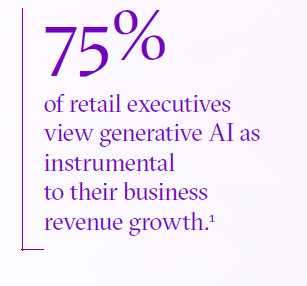In recent years, artificial intelligence in retail has dramatically transformed the experience of both consumers and businesses. This was the main focus of our recent webinar with Daniele Cazzani, retail expert and founder of newmarketingretail.com. Together, we explored how AI is influencing the shopping experience, customer expectations, and business strategies.
Artificial Intelligence in Retail: a sure bet
Daniele introduced the concepts of VUCA (Volatile, Uncertain, Complex, and Ambiguous) and BANI (Brittle, Anxious, Non-linear, and Incomprehensible), emphasizing how these terms aptly describe the challenges and uncertainty that the retail sector is currently facing. The shift towards digitalization, accelerated by the pandemic, and changing consumer behavior are among the factors deeply impacting this sector. Today’s customers expect a seamless, frictionless experience like they get with e-commerce, even in physical stores, pushing many companies to revise their strategies.
Generative AI revolution
In Accenture’s report “Retail Reinvented: Unleashing the Power of Generative AI”, 75% of retail managers consider generative AI essential for business growth. This awareness shows that it’s no longer a question of “if” to implement AI but of defining goals and understanding how AI can actually contribute to achieving them.
As Daniele explained, AI can support customer service by improving efficiency, providing targeted, personalized suggestions, and enhancing user satisfaction in real time.

AI as a Shopping Influencer
One tangible example of how artificial intelligence in retail is revolutionizing the shopping experience comes from Google, which has developed a natural language chatbot capable of suggesting dinner menus and responding flexibly to user requests. This technology is groundbreaking; consumers are increasingly open to this type of interaction because AI meets the growing demand for simplicity and guidance in a complex array of choices.
However, Daniele also emphasized the importance of transparency: consumers need to know they’re interacting with an AI to foster trust and maintain a high standard of transparency and ethics.
Convergence of Online and Offline: the omnichannel customer experience
Another central theme that emerged in the webinar is the convergence between e-commerce and physical retail. Consumers no longer differentiate between the two channels but expect a seamless, integrated experience. Digital tools such as interactive kiosks, self-checkouts, and the “endless aisle” bridge the gap between physical and digital by offering customers additional information and products beyond those available in-store.
Artificial intelligence in retail: strategies and opportunities for businesses
Artificial intelligence in retail represents an extraordinary opportunity to enhance customer experience and increase operational efficiency, but the starting point remains self-analysis: businesses need to assess their goals and determine whether they have the necessary data to fully leverage AI’s potential.
Conclusioni
Throughout the webinar, we explored AI’s potential as an innovation driver for retail, from technologies that optimize customer assistance to omnichannel solutions that improve the customer journey at every touchpoint. With a strategic, customer-focused approach, AI can become a decisive tool for the future of retail, supporting growth and strengthening the bond between consumers and brands.

